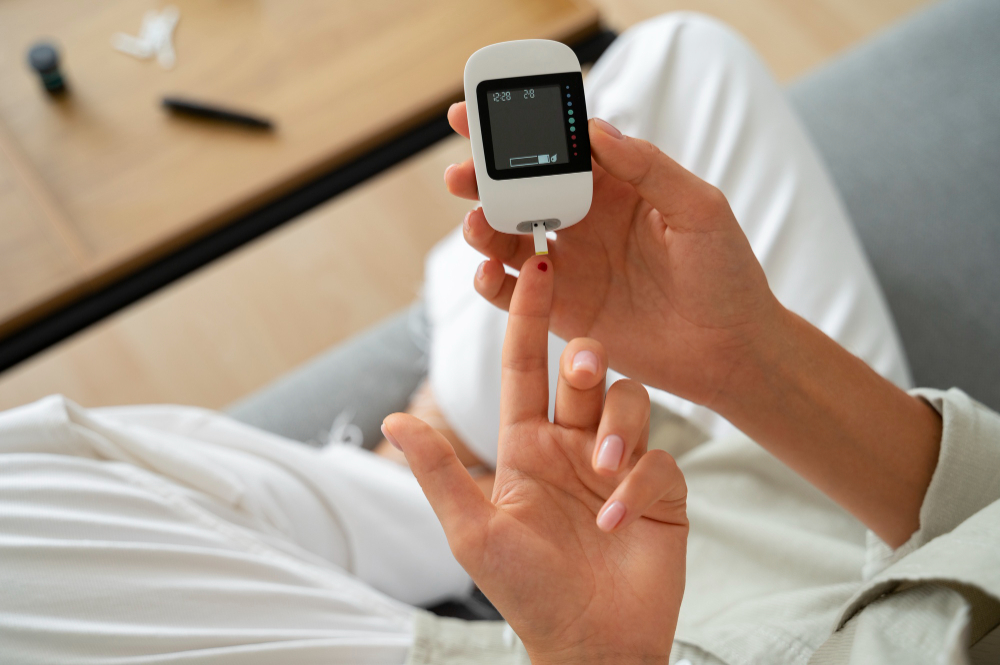
Pre-diabetes is a crucial health concern affecting millions of individuals globally, including here in Philadelphia, PA. It's a condition where blood sugar levels are higher than normal but not yet high enough to be classified as type 2 diabetes. Understanding pre-diabetes is essential, as it serves as a warning sign for potential future health complications. By recognizing the symptoms early and seeking primary care in Philadelphia, PA, individuals can manage their health effectively and possibly reverse the condition.
Pre-diabetes is often the precursor to type 2 diabetes. According to the CDC, approximately 88 million American adults have pre-diabetes, which equates to more than 1 in 3. The alarming part is that more than 84% of people with pre-diabetes don’t even know they have it. Recognizing and addressing it early is crucial to prevent further health issues.
Unlike type 2 diabetes, pre-diabetes often has no clear symptoms. However, some individuals may notice:
These symptoms can be subtle and easy to overlook, which is why regular screening with your primary care provider is vital, especially if you have risk factors such as a family history of diabetes, being overweight, or leading a sedentary lifestyle.
Primary care plays a pivotal role in the diagnosis and management of pre-diabetes. In Philadelphia, PA, healthcare providers like Vital Urgent Care can offer comprehensive screenings and personalized treatment plans. Regular check-ups ensure that any changes in blood sugar levels are caught early, allowing for timely intervention.
Several factors can increase the risk of developing pre-diabetes, including:
Understanding your risk factors can help you take proactive steps to prevent the development of pre-diabetes.
The good news is that lifestyle changes can often reverse pre-diabetes. Here are some effective strategies:
Adopting a balanced diet rich in whole grains, lean proteins, and vegetables can help lower blood sugar levels. Reducing sugar and refined carbohydrates is also crucial.
Regular physical activity helps control weight and lowers blood sugar. Aim for at least 150 minutes of moderate exercise weekly, such as brisk walking or cycling.
Losing even a small amount of weight can make a significant difference. Research shows that losing 5-7% of your body weight can delay or prevent diabetes.
Monitoring your blood sugar levels regularly can help you understand how your lifestyle changes are affecting your health. It also keeps you in close contact with your primary care provider, ensuring any necessary adjustments to your plan are made promptly.
In some cases, medication might be necessary. Medications such as Metformin could be prescribed, especially if lifestyle changes alone aren’t enough to control blood sugar levels.
If you're in Philadelphia, PA, and seeking primary care, Vital Urgent Care is here to help. Our team of experienced healthcare professionals is dedicated to providing personalized care tailored to your unique needs. We offer:
Our goal is to empower you to take control of your health and prevent the progression of pre-diabetes to type 2 diabetes.
Receiving a diagnosis of pre-diabetes can be daunting, but it's important to view it as an opportunity to make positive changes in your life. With proper management and support from your primary care provider, you can lead a healthy, fulfilling life.
Philadelphia offers various resources for those managing pre-diabetes. Support groups and community programs provide education, encouragement, and motivation. Engaging with others who share similar experiences can be incredibly beneficial.
Family and friends play a crucial role in supporting lifestyle changes. Encouragement and understanding from loved ones can make dietary changes and regular exercise more manageable. Consider involving them in your efforts, such as cooking healthy meals together or joining you for walks.
Understanding and treating pre-diabetes is crucial for preventing the onset of type 2 diabetes. By recognizing the symptoms early, engaging with primary care services like those provided by Vital Urgent Care in Philadelphia, PA, and making necessary lifestyle adjustments, you can take control of your health.
Don't wait until it's too late—take action today. If you suspect you might have pre-diabetes or want to ensure you're on the right path to maintaining healthy blood sugar levels, contact Vital Urgent Care today to request an appointment. Our team is committed to providing you with the care and support you need to manage your health effectively.